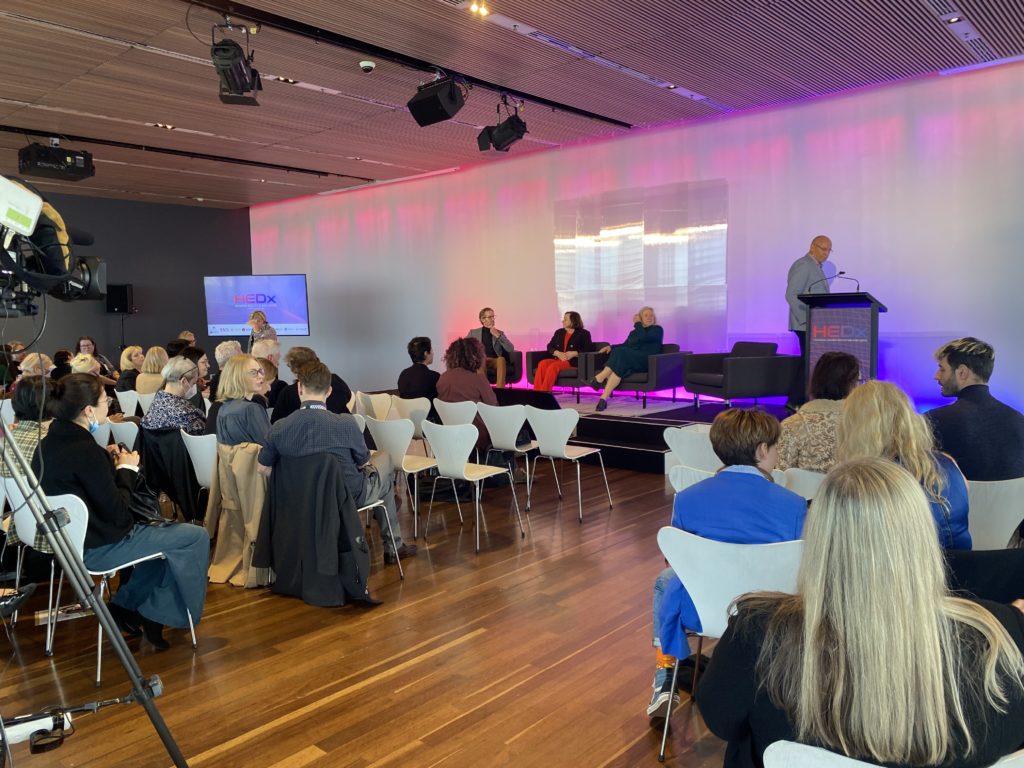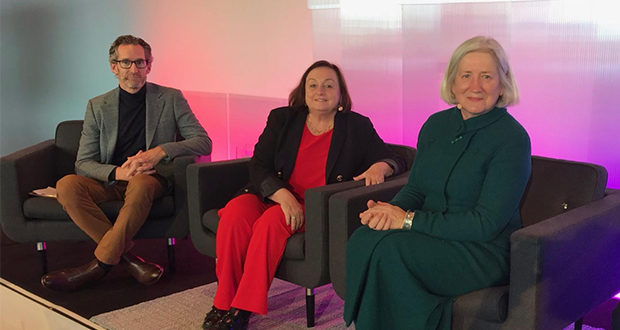Universities are sleepwalking on gender equity and must implement stronger policies to address sexism and increase womens' representation in higher levels of academia, sector leaders have said.
Higher education consultancy HEDx held its second live conference event in Sydney's Museum of Contemporary Art yesterday.
The panel brought together some of NSW's leading vice-chancellors and executives, who discussed the ways in which universities can commit to improving women's workplace rights.
In her keynote address, chief executive of the Victorian Academy of Teaching and Leadership Professor Marcia Devlin said COVID-19 had worsened an already "sub-optimal" culture of sexism in higher education.
She highlighted that while women currently make up at least half of the staff in Australian universities, men hold 86 per cent more associate professor or professor roles than their female counterparts.
"There are also implicit gendered expectations of women," she said.
"Women are expected to serve others and say yes to requests that come their way. Mainly, women are expected to do the 'academic housework'.
"This includes teaching low level, high volume subjects to students who require extra care, and a lot of informal colleague care and mentoring to others."
During the panel discussion, vice-chancellor of the University of Wollongong Patricia Davidson said that women in higher education often have to "sink or swim on our own".
Davidson, who is the former dean of Johns Hopkins University in the US, said intersectionality was "critically important" when speaking about diversity and equity in education.
"We need to recognise a range of gender norms and identifiers," she said.
"My experience coming from a white, middle class background who has had a huge range of opportunities, is entirely different than a Black, trans individual.
"We need much more nuanced conversations, and we need to think about class just as much."

Research shows that during the pandemic, men increased their rate of writing research papers by 6.4%
working from home, while women’s publishing productivity only went up by 2.7%.
Meanwhile, the proportion of women authors on research papers fell from 36% to 32%.
According to HEDx co-founder Emeritus Professor Martin Betts, male academics have a significant role to play in advocating against unconscious gender bias.
"Because there are so many male leaders in higher education, if we are going to have change put in place by leaders, then we need them to become advocates and call out actions when they see it," he said.
On the subject of change, vice-chancellor of the University of New England Professor Brigid Heywood said universities must take extra care to include a range of voices in administrative governance.
"I think change right now is about taking a 21st century idea of gender equity and inclusion, and not trying to box us into a 20th century view of equity and inclusion."
To continue the discussion on gender equity, HEDx will host an event in Melbourne on June 24th featuring leaders from Victoria's higher education sector.
Do you have an idea for a story?Email [email protected]
 Campus Review The latest in higher education news
Campus Review The latest in higher education news

